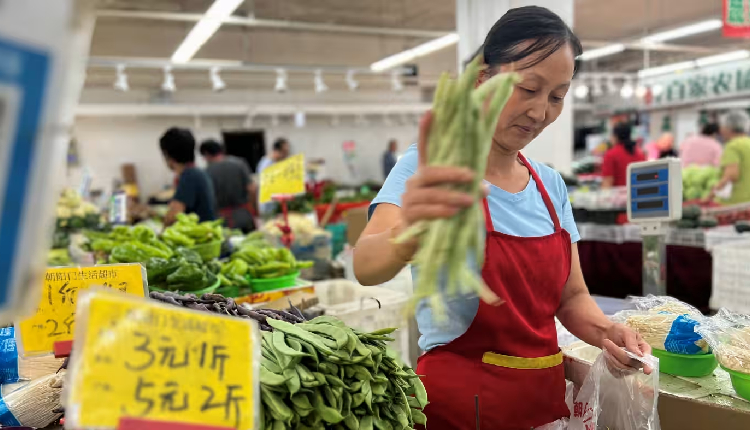China’s consumer prices rose for the fifth straight month in June, but fell short of expectations. Producer prices continued to decline, indicating weak domestic demand despite government efforts to support the economy.
The Consumer Price Index (CPI) rose 0.2 per cent year-on-year in June, compared to 0.3 per cent in May and below a forecast of 0.4 per cent. This is the slowest pace in three months.
While food prices declined 2.1 per cent year-on-year, versus a 2.0 decrease in May, with fresh vegetables prices dropping 7.3 per cent compared with 2.3 increase in May and fresh fruit prices falling 8.7 per cent from 6.7 per cent in May.
CPI dropped by 0.2 per cent month-on-month, compared to a 0.1 per cent decrease in May. The Producer Price Index (PPI) fell by 0.8 per cent year-on-year, in line with expectations, showing an improvement from the 1.4 per cent decline in May.
Despite government support measures for the world’s second-largest economy, domestic demand remains sluggish. This is attributed to a slow post-COVID recovery, a prolonged housing downturn, and job insecurity.
The data raises concerns about achieving the official inflation target of three per cent for 2024. Capital Economics’ Gabriel Ng estimates full-year CPI to rise just 0.5 per cent, highlighting the need for more effective policy measures.
Ng pointed to excess manufacturing capacity and government prioritisation of investment as factors weighing on inflation.
Chinese stock markets reacted negatively to the data, causing the yuan to fall to an eight-month low.
Policymakers’ calls for increased consumer spending have shown limited success, prompting discussions about broader policy support beyond current subsidies for trade-ins on cars and consumer goods.
China may announce changes to its consumption tax at an upcoming leadership meeting, potentially shifting focus from manufacturing to consumer growth.
Economists like Lynn Song of ING believe the soft inflation and weak credit data compel China’s central bank to consider further monetary policy easing in the coming months.
Core inflation, excluding volatile food and energy prices, remained unchanged at 0.6 per cent in June compared to May.
Attribution: Reuters


